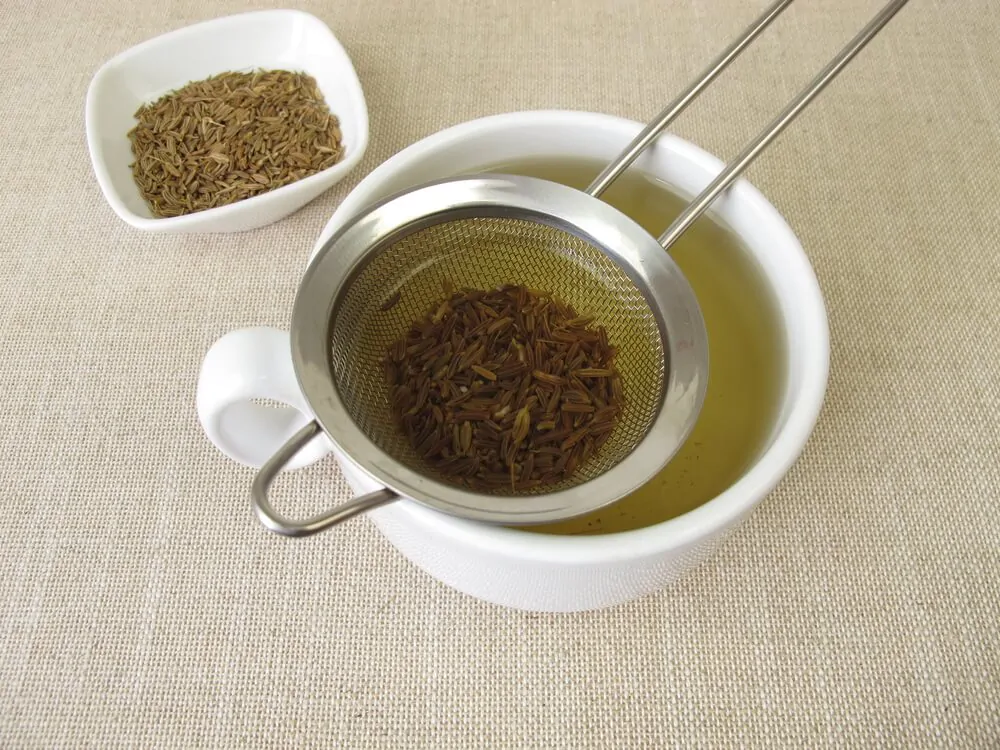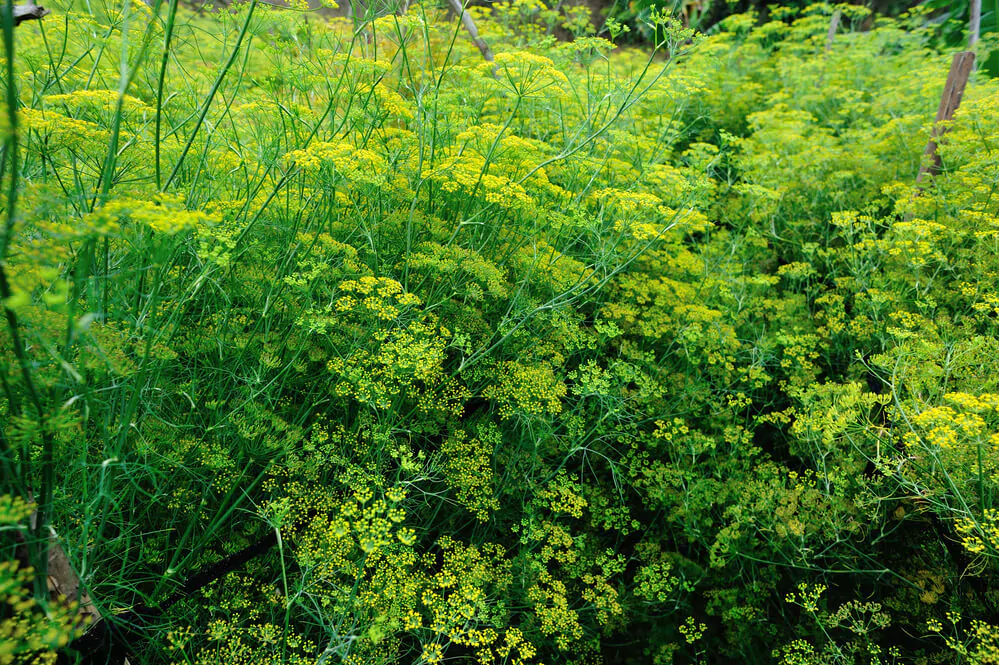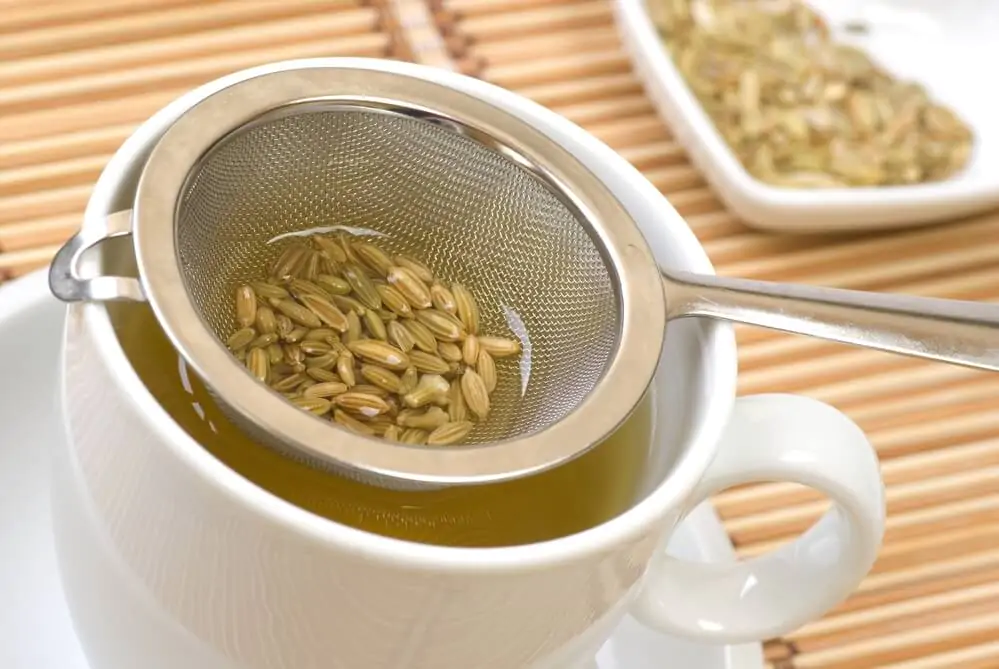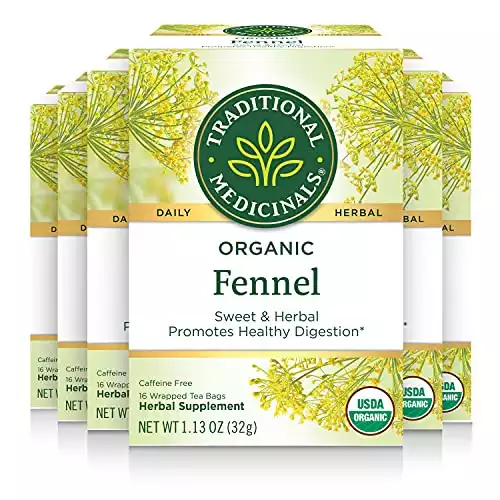What is a Fennel tea? Fennel, scientifically known as Foeniculum vulgare, is a perennial herb native to the Mediterranean used for its medicinal properties.

I first discovered fennel tea in a desperate search for a natural way to treat my chronic irritable bowel syndrome (IBS). I experienced frequent prescription drug side effects, and I wanted something more gentle on my body. I had heard that fennel tea might help due to its antispasmodic properties.
Having somewhat low expectations, I was surprised at how effectively fennel tea soothed my stomach. Thrilled at this discovery, I was encouraged to look further into this tea and any other potential health benefits it may have.
With a relatively recent rise in popularity of alternative natural health remedies in the West, more people than ever are enjoying the healing properties of tea. If you have not experienced fennel tea, you may consider pouring a cup after reading up on this magical herb.
In this article, I will cover the essential elements of fennel tea so that you will be well equipped to take advantage of the truly remarkable benefits this herbal tea has to offer.
History
Scientifically known as Foeniculum vulgare, fennel is a perennial herb native to Southern Europe and Asia Minor that produces the seeds from which fennel tea derives.
The Greeks consumed the aromatic, anise-smelling beverage not only to alleviate their stomach indigestion but also regarded it as a potion that summons the warrior’s courage inside them before battles.
Deeply ingrained in Greek culture, the fennel plant served as a flame container when the divine trickster Prometheus stole fire from his cousin god Zeus.

Both Roman and Greeks used fennel for food, medicine, and insect repellent. Medieval Europe used it as an ingredient for preparing their absinthe, which later became popular in the 19th century as France’s alcoholic drink.
The natural philosopher, Pliny the Elder (23-79AD), is widely cited as the first person to document the herb’s medicinal potential in writing, believing that snakes ate it after shedding their skin to improve their eyesight.
China, India, and the Middle East have long used fennel for its medicinal properties and health benefits, a practice validated by research and modern science.
Besides placing fennels in their drinks, Europeans hung them in their doorways as they superstitiously believed in could ward off evil spirits from entering their homes.
Today, the most popular way to take advantage of this magical herb’s healing properties is to consume it as tea. Let’s look at some of fennel tea’s significant benefits as suggested by modern science.
Health Benefits
Medical professionals have dismissed many herbal remedies from traditional or ancient medicine. However, modern science has begun to validate the health benefits of fennel tea that other cultures have known about for ages.
According to webmd.com, much of fennel’s healing properties derive from the herb’s essential oils in the seeds used to brew fennel tea. Fennel is an excellent source of Vitamin C, potassium, and calcium. The essential oils in fennel combined with these vitamins may help prevent bacterial and fungal infections (if taken with antibiotics).
Although fennel tea will not cure an illness entirely, it complements medication and treatments well and may speed up the recovery process. The entirety of the fennel plant is known to contain therapeutic properties. Fennel tea only uses seeds – but the grains contribute to this tea’s potential to treat a wide range of ailments.
There have been various studies on the essential oils found in fennel seeds that suggest fennel tea is an effective treatment for a myriad of health issues, including but not limited to:
- Digestive issues
- Irritable bowel syndrome (IBS)
- Irregular menstrual cycle
- Fungal infections
- Bacterial infections
- Minor pain
- Inflammation
- Lactate stimulant for breastfeeding mothers
Fennel tea also may help period pains, PCOS, and hormonal changes. As an alternative medicine to pain relievers, research from a 2012 study shows that fennel possesses properties in keeping the uterus from contracting, which caused pain suffered by women with dysmenorrhea. In related research, fennel’s anethole component boosts milk production for lactating mothers.

Fennel aids good eyesight as it has antioxidant properties and nutrients which help slow down cataract progression. Almond, known to have rich omega-3 fatty acid, antioxidant content, and vitamin E, is mixed with fennel and is drunk by many people to avoid early signs of eye problems like conjunctivitis.
Fennel tea also has memory-enhancing features for frequent drinkers. In India, fennel seed is mixed with almond and milk to produce a concoction for better brain activity. This memory-enhancing drink is taken after breakfast and dinner to improve cognitive skills.
Potential Risks
Fennel tea may reduce the effectiveness of certain medications, such as birth control, due to its ability to increase estrogen. Consult your health care provider if you are currently taking any medications or have any allergies before consuming any dietary supplement.
Trends & Future Implications
Although fennel tea has a long and rich history of use across the globe, its increase in popularity in the West is a relatively recent phenomenon. As more people discover and experience its distinct taste and incredible health benefits, I am confident fennel tea will only continue to rise in popularity.
My Favorite Fennel Tea
My favorite fennel tea that is readily available is Traditional Medicinals Fennel Tea. Their ingredients are top quality and listed on the back of each tea bag package with nutritional information.
If you liked this article check out What Is Rose Tea.
How to Make a Cup of Fennel Tea
But beyond the stories of old, the fennel tea made its way to man’s coffee table because of its licorice taste, soothing aroma, and mild bitter aftertaste.
The fennel’s aromatic trait is mainly due to anethole, a compound also found in anise and star anise. The fennel’s flavor and taste, though is, of lesser note compared to the previous.

Fennel teas are best made by crushing the plant’s dried seed and loading a tablespoon of it into a tea infuser. A good 5-minute steep in boiling water would eventually bring out the aromatic scent and flavor of the drink.
However, one could also order online or purchase other forms of fennel in groceries, which could be in tea bags, loose tea, or powder.
Related Questions On What Is A Fennel Tea
Can fennel tea help you lose weight? Is fennel tea good for anxiety?
Traditionally, drinkers consume teas to reduce anxiety and relieve stress. A 2018 study on fennel tea shows anti-anxiety and antidepressant effects in postmenopausal people. This result, however, is not definitive. Fennel tea is best used to solve gastric issues, which are common anxiety symptoms.
Can I drink fennel tea every day?
Fennel tea is generally safe to drink and has no established recommended daily limit. However, it is wise to start with one cup at a time and observe how your body will react.
Can fennel tea help you lose weight?
Drinking fennel tea has diuretic properties that can help remove toxins from the body, contributing to weight loss. Also, fennel seeds can help kick-start the body’s metabolism, which is an excellent weight loss.
References:
https://en.wikipedia.org/wiki/Fennel
https://www.medicalnewstoday.com/articles/319651#health-benefits
https://www.healthline.com/health/fennel-tea#health-benefits
https://www.irctcloginindia.co.in/2016/09/boost-your-brain-power-instantly-using.html
https://www.organicfacts.net/health-benefits/beverage/fennel-tea.html
https://www.stylecraze.com/articles/fennel-tea-benefits/
https://www.kreta-inside.com/wild-fennel/

